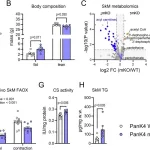A groundbreaking clinical trial led by researchers at Michigan Medicine has debunked a popular myth that adenotonsillectomy—the surgical removal of the tonsils and adenoids—leads to significant weight gain in children. The study, published in JAMA Otolaryngology–Head & Neck Surgery, provides clear evidence that tonsil removal does not cause excessive weight gain in children with mild sleep-disordered breathing.
Adenotonsillectomy is commonly performed to treat children suffering from mild sleep-disordered breathing, a condition where children experience obstructive sleep apnea symptoms but do not meet the criteria for a formal diagnosis of obstructive sleep apnea. Despite its success in improving symptoms, a longstanding belief has persisted that the procedure could lead to undesirable weight gain.
The study draws from the Pediatric Adenotonsillectomy Trial for Snoring (PATS), which included 458 children with mild sleep-disordered breathing. The children were randomly assigned to either undergo adenotonsillectomy or receive “watchful waiting with supportive care.” While the trial revealed no significant improvement in primary neurodevelopmental outcomes, it did show improvements in secondary outcomes, including symptoms, blood pressure, and quality of life.
In their latest analysis, the research team sought to investigate the theory that adenotonsillectomy contributes to weight gain. The findings challenge this assumption, which had been based on earlier studies with little control data. According to Dr. Erin Kirkham, lead author of the study and a pediatric otolaryngologist at the University of Michigan’s C.S. Mott Children’s Hospital, the belief that tonsillectomy leads to weight gain was largely a misinterpretation.
“Children who are overweight tend to gain more weight over time, regardless of whether or not they’ve had surgery for sleep apnea,” Dr. Kirkham explained. “Previously, we were seeing a natural trajectory of weight gain and attributing it to surgery.”
The study also highlighted the complex relationship between weight and sleep-disordered breathing in children. Overweight children are more likely to develop symptoms of sleep apnea, while underweight children, who fail to thrive due to sleep disruptions, may experience healthy weight gain after surgery.
A significant issue in past research was grouping underweight children with normal or overweight children, which may have skewed results, making it appear as though adenotonsillectomy was a direct cause of weight gain. The study’s analysis indicates that the procedure is not an independent risk factor for undesirable weight gain.
The PATS trial measured undesirable weight gain by tracking children who either became overweight or continued to gain weight after surgery. In the adenotonsillectomy group, 32% of children experienced unwanted weight gain compared to 27% in the watchful waiting group. However, a regression analysis showed no significant link between the surgery and weight gain.
Dr. Ronald D. Chervin, senior author of the study and a sleep medicine expert at Michigan Medicine, emphasized that families and healthcare providers should not be overly concerned about the potential for obesity following adenotonsillectomy. “If you’re a sleep specialist—or an otolaryngologist considering taking out a child’s tonsils—you don’t have to worry families as much by saying, ‘There’s an obesity epidemic, and if you choose surgery, it could increase the risk of obesity for your child,'” Dr. Chervin said.
While the study’s findings should put to rest fears about weight gain linked to adenotonsillectomy, the authors note that a third of children in the trial did experience unwanted weight gain. This points to the importance of addressing weight management, particularly for children with mild sleep-disordered breathing.
The research team suggests that clinicians should take the opportunity to encourage healthy weight management when treating overweight children with sleep-disordered breathing, reinforcing the need for balanced approaches to both health and weight.
Reference:
“Weight Gain After Adenotonsillectomy in Children With Mild Obstructive Sleep-Disordered Breathing: Exploratory Analysis of the PATS Randomized Clinical Trial” by Erin M. Kirkham, et al., JAMA Otolaryngology–Head & Neck Surgery, 22 August 2024.
DOI: 10.1001/jamaoto.2024.2554
The study was funded by the National Heart, Lung, and Blood Institute.











